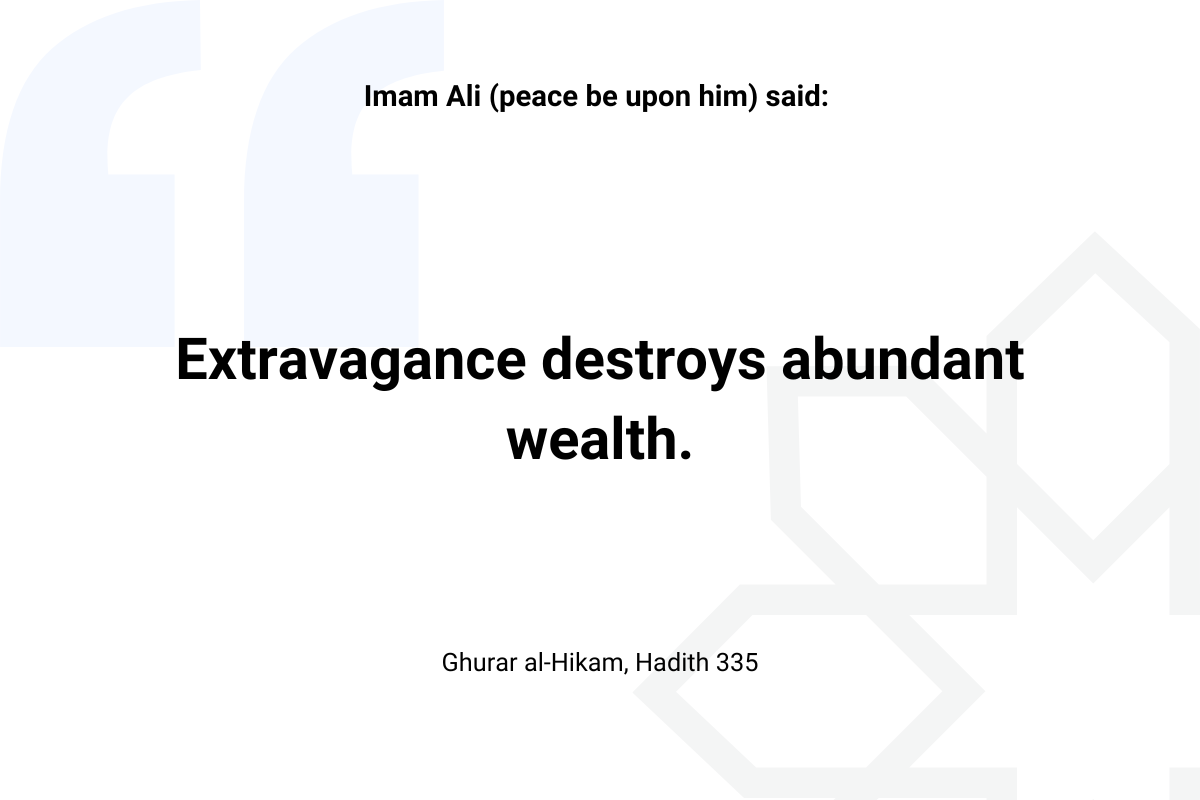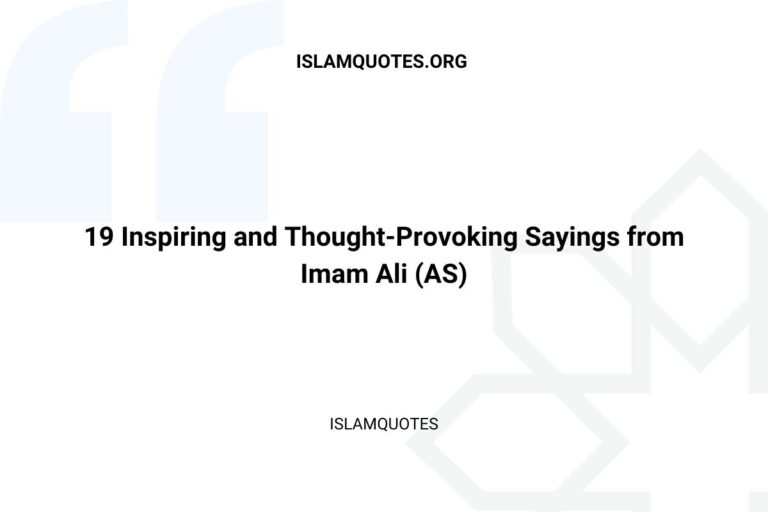Imam Ali (peace be upon him) said: “Extravagance destroys abundant wealth.”
Source: Ghurar al-Hikam, Hadith 335
Understanding the Consequences of Extravagance in Islam
Introduction to Islamic Teachings on Extravagance
Islamic teachings emphasize moderation and balance in all aspects of life, including financial management. The hadith by Imam Ali underscores the destructive nature of extravagance, warning that excessive spending can lead to the depletion of even great wealth. This teaching aligns with broader Islamic principles that advocate for prudent and mindful living.
The Impact of Extravagance on Wealth
Extravagance Defined
Extravagance (isrāf) in Islamic context refers to spending excessively beyond one’s means or necessities. It is often driven by a desire to impress others or to indulge in fleeting pleasures, rather than to fulfill genuine needs. This behavior not only jeopardizes personal financial stability but also contradicts the Islamic virtue of moderation.
Economic Implications of Extravagance in Islam
Extravagance in Islam teaching can have significant economic consequences. Financial experts and economists have long highlighted the risks associated with overspending. According to a study published in the “Journal of Consumer Research” (Dunn, E. W., & Norton, M. I., 2013), individuals who practice mindful spending tend to achieve higher levels of financial security and overall well-being. This scientific perspective supports the Islamic view that moderation is key to sustaining wealth and happiness.
The Ethical Dimensions of Observing Moderation
Moderation as an Ethical Imperative
In Islam, moderation (i’tidāl) is not just a financial principle but an ethical mandate. The Quran repeatedly advises against excessiveness and encourages believers to lead balanced lives. For example, Surah Al-A’raf (7:31) states, “Eat and drink, but be not excessive. Indeed, He likes not those who commit excess.”
Practical Ways to Implement Moderation
Observing moderation involves:
- Budgeting: Creating and adhering to a realistic budget that aligns with one’s income and essential needs.
- Mindful Spending: Prioritizing necessary expenditures over luxury items.
- Saving and Investing: Allocating a portion of income to savings and investments for future security.
The Spiritual and Social Benefits of Avoiding Extravagance
Spiritual Significance
Avoiding extravagance aligns with the spiritual goals of Islam, which include cultivating contentment (qanāʿa) and gratitude (shukr). By resisting the urge to overspend, individuals can focus on spiritual growth and the pursuit of meaningful, non-materialistic values.
Social Responsibility
Extravagance also has social implications. Resources spent on unnecessary luxuries could be redirected to charitable causes and helping those in need. Islam encourages sharing wealth and providing for the less fortunate, as reflected in numerous Quranic verses and hadiths. By avoiding extravagance, individuals can contribute to social welfare and justice.
Practical Steps to Cultivate Moderation and Avoid Extravagance
Developing Financial Literacy
- Educate Yourself: Learn about financial management, budgeting, and investment strategies.
- Seek Guidance: Consult financial advisors or Islamic scholars for advice on managing wealth in accordance with Islamic principles.
Practicing Contentment
- Embrace Simplicity: Adopt a lifestyle that prioritizes essential needs over luxury.
- Cultivate Gratitude: Regularly reflect on and express gratitude for what you have, which can reduce the desire for unnecessary possessions.
Supporting Community Welfare
- Charitable Giving: Allocate a portion of your income to charity (zakah and sadaqah), fulfilling Islamic obligations and supporting those in need.
- Volunteerism: Engage in community service and support initiatives that promote social welfare.
Conclusion
Imam Ali’s hadith, “Extravagance destroys abundant wealth,” offers profound wisdom on the importance of moderation. By understanding and implementing the principles of financial prudence, ethical spending, and social responsibility, individuals can avoid the pitfalls of extravagance. These teachings not only protect personal wealth but also contribute to spiritual growth and societal well-being.








